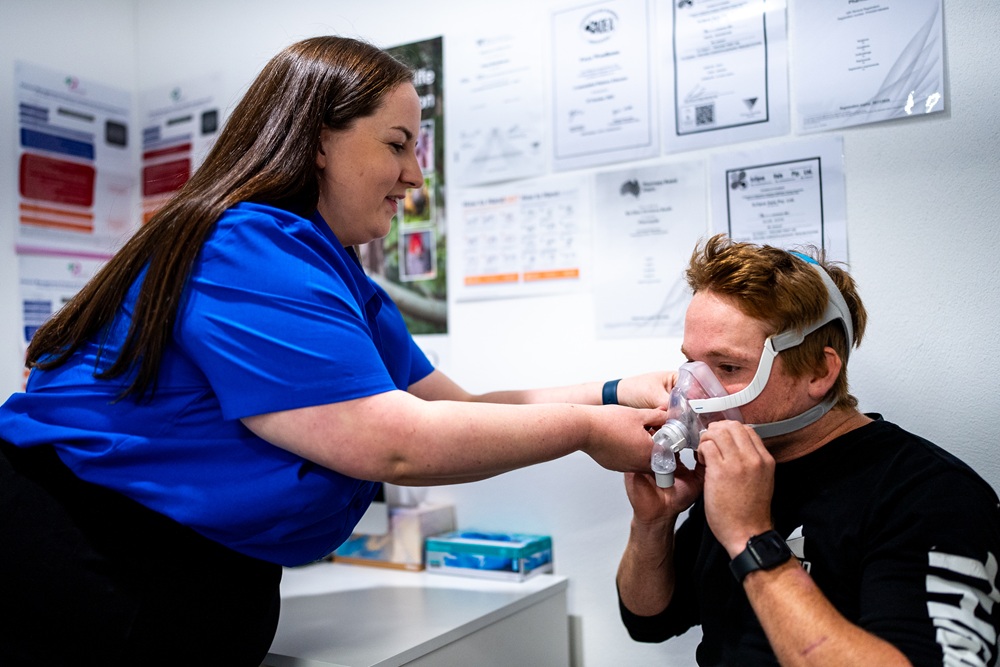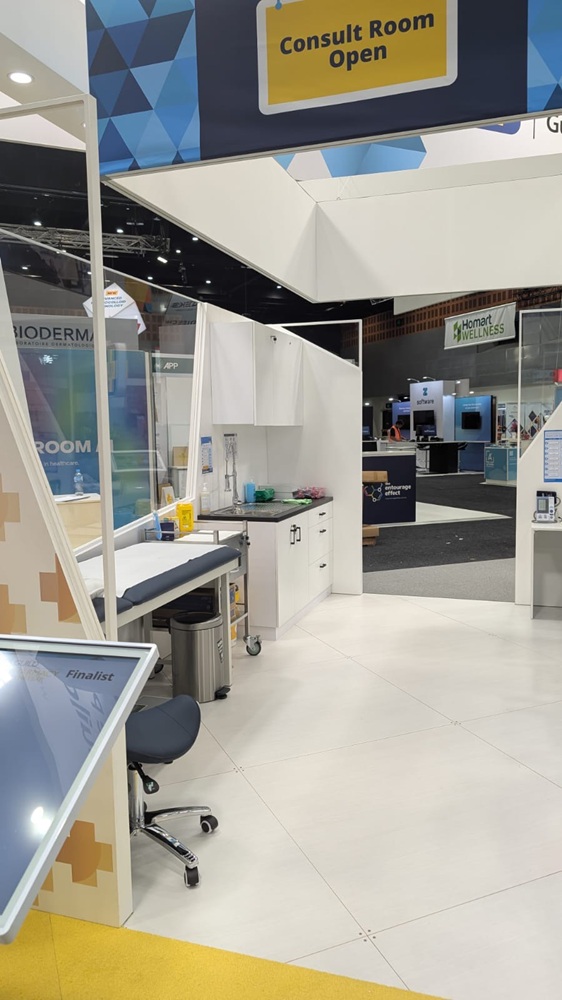Think about the patient’s experience
Patient experience should be the first consideration when setting up a consultation room.
The space should be comfortable, confidential and uncluttered.
Considerations:
- Make the room inviting by using light colours to create a sense of cleanliness and professionalism.
- Ensure the room is soundproofed or away from loud noise, so the patient doesn’t feel they can be heard by others.
- Choose easy-to-clean materials with longevity to reduce maintenance costs.
Utilise space
Before construction begins, ensuring you have enough space is vital.
Considerations:
- Decide the types of clinical services you want to offer as this will determine how big the room needs to be.
- Ensure staff and patients can move around comfortably, and there are no physical barriers – this will help promote connection and communication.
- Ensure easy access for people of all abilities.
- Ensure emergency workers can fit their equipment in the room should an emergency arise.
Safety
Staff safety is priority when designing a consult room.
Considerations:
- Have security policies and procedures in place, so staff know how to respond to physical or verbal abuse in the room.
- Have an emergency call out procedure.
- Install a security system, possibly CCTV or a panic alarm.
- Ensure pharmacy staff have easy access to the door.
Equipment
During the design phase, decide the types of clinical services you would like to offer – this will impact the equipment needed.
Considerations:
- Prescribing pharmacists must use a height-adjustable examination table or fully reclinable bed chair.
- Vaccinating pharmacists must have adequate seating for patients.
- Mandatory items in all consultation rooms include hand santising station, waste disposal bins, first aid kit. In consultation rooms where vaccinations are performed – anaphylaxis kits and access to Australian Immunisation Register are required.
- Items that aren’t mandatory but are helpful include a desk and chair for the pharmacist, computer, storage unit, sink and fridge
What if I feel I don’t have the space or the budget?
If you’re working with a small budget take a minimalist approach, which includes the mandatory items and some seating, Mrs Wright said.
“We recognise that not every pharmacy can do this tomorrow – there are inherent challenges, so start small and see this as a journey.”
When it comes to utilising space in smaller shops, consider replacing retail space, Mrs Wright said.
Understandably, some pharmacy owners will be concerned about the bottom line. Mrs Wright said, however, once pharmacists offer more clinical services, they will see a return on their investment.
“I’m not saying get rid of everything because part of the attraction of pharmacy is the coexistence of a retail space and healthcare services – it’s important to have both.
“But it’s time we reconsidered what our patients will need in the future – that is more services.”
Pharmacy Guild of Australia has a suite of member-only resources to help your pharmacy premises ensure a safe, comfortable, and professional environment for patient services.
Listen
The Pharmacy Guild of Australia’s Harriet Wright explains how to set up a pharmacy consult room to maximise space, improve patient privacy and support clinical services.










